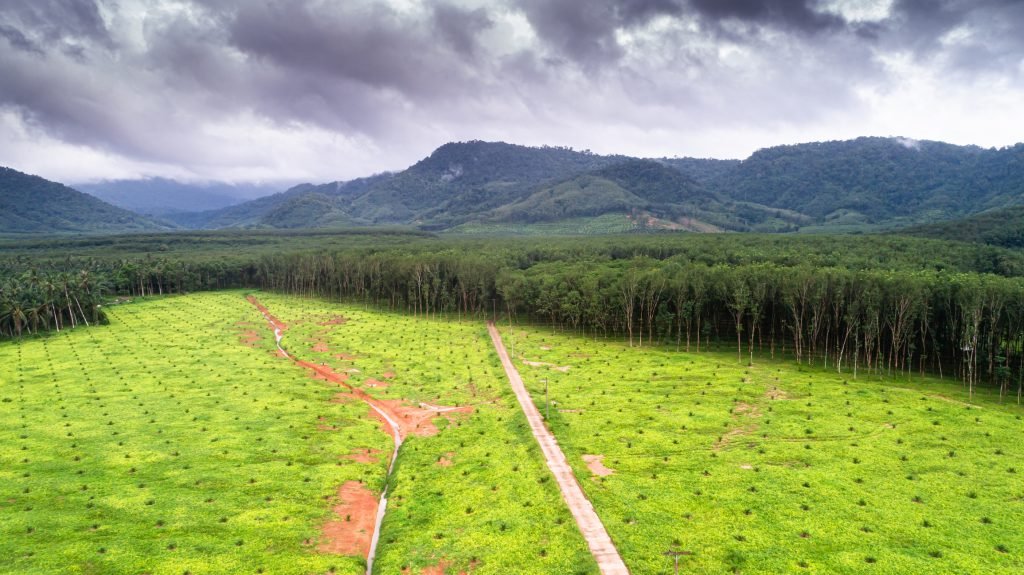In July, Indonesian Deputy Foreign Minister Arif Havas Oegroseno announced a new push to develop palm oil standards through Global South cooperation organisations – specifically the BRICS (Brazil, Russia, India, China, South Africa and others), CPAPC (the Council of Palm Oil Producing Countries) and the UN’s Food and Agriculture Organisation (FAO).
It comes as the EU’s recently passed Deforestation Regulation (EUDR), which has been delayed and is currently scheduled to take effect at the end of 2025, is coming under intense criticism from countries in the Global South.
Speaking at the Bioenergy Industry Opportunities and Challenges Seminar in Jakarta on 17 July, the deputy foreign minister said the initiative is designed to prioritise the needs of developing nations and smallholder farmers. “The European Union has created its own standards without any alternative benchmark,” he said. “So, we must create our own benchmark outside the EU. We need to establish national or international standards under platforms like CPOPC, BRICS, and FAO.”
Several BRICS countries have so far responded favourably to the idea, and there is already a consensus to create sustainable vegetable oil standards that acknowledge the challenges faced by developing nations.
Arif Havas told the conference that the new plan marks a “strategic shift – Indonesia will no longer just react to global rules, it will take the lead in shaping them.”
He said that rules designed by jurisdictions in which the commodities impacted (palm oil, cocoa, rubber and coffee) are not grown are not taking into account the sustainability actions taken by governments in producing countries.
Government actions unveiled
Indonesia and Malaysia, the world’s two largest palm oil producers, have rolled out a number of public policies to make their palm oil industries more sustainable. Both governments are relying on mandatory certification schemes and stronger environmental safeguards. The results so far have been mixed.
Jakarta made its Indonesian Sustainable Palm Oil (ISPO) scheme compulsory through a 2020 Presidential Regulation, requiring all growers, including smallholders, to be certified by 2025. The standard covers legal compliance, environmental protection and labour rights. The government also introduced peatland restoration programs and, until 2021, maintained a moratorium on new oil palm permits. After the moratorium lapsed, officials insisted that existing regulations were sufficient to control deforestation and land-use change.
As of 2024, about 35–36 per cent of Indonesia’s plantation area was ISPO-certified, with independent smallholders struggling to meet the costs and technical demands. Watchdogs have warned of gaps in peat protection and enforcement.
Deforestation, which had fallen steadily since the mid-2010s, ticked up again in 2023-2024. Analysts say renewed expansion pressures and inconsistent enforcement risk undermining hard-won environmental gains.
Mandatory certification
Malaysia has also passed a number of new laws to improve the sustainability of palm oil. Its Malaysian Sustainable Palm Oil (MSPO) certification became mandatory in 2020, and the government unveiled MSPO 2.0 in 2022, introducing tougher requirements on deforestation cut-offs, labour conditions, and traceability.
The new standard officially took effect on 1 January 2025. Authorities backed the transition with funding and outreach campaigns. By the end of 2024, around 86 per cent of plantations were certified, with officials targeting more than 95 per cent coverage in 2025. The results are visible. Primary forest loss in Malaysia declined by 13 per cent in 2024 compared to the previous year, according to World Resources Institute data, pushing the country out of the global top-10 for tropical forest loss.
“Malaysia has put in place policy frameworks and legislation to ensure sustainable development of the industry,” says Dr. Ahmad Parveez Ghulam Kadir, Director-General of the Malaysian Palm Oil Board. “The development of the oil palm industry is governed by more than 60 regulations and laws, making it one of the most regulated industries in Malaysia. More importantly, Malaysia has prohibited the opening of new land areas for oil palm cultivation.”
Both countries have complained that the EUDR, which requires palm oil imports to be deforestation-free, doesn’t recognise these efforts. Jakarta and Kuala Lumpur have joined a joint task force with the EU aimed at aligning certification, traceability and legality standards.
Commission defending EUDR
In a letter sent to the European Parliament before the legislature voted in December to delay the implementation of the law, a group of NGOs warned that if the EU doesn’t stand by its law in the face of global pressure, forests will be put at risk.
“The world’s forests urgently need the protection that the EUDR offers. Following years of failures by the private sector to voluntarily address environmental and human rights impacts in their supply chains, the EUDR is a necessary and crucial step. By delaying its application and giving in to the demands of vested interests, the European Commission is significantly undermining the EU’s credibility as a global leader in the fight against climate change, biodiversity loss and human rights violations,” they warned.
The centre-right European People’s Party of European Commission President Ursula von der Leyen has led the efforts to delay and adjust the EUDR. However, so far, the Commission is standing behind the legislation.
In April, the Commission released simplification guidelines “replying to feedback from the EU’s international partners.” It came with a Delegated Act that would clarify the scope of the new rules, along with a country benchmarking system. But they say they are standing behind the law.
The Commission noted that, “Together, all these measures will lead to a currently estimated 30% reduction of administrative costs and burden for companies. This will ensure a simple, fair and cost-efficient implementation of this key piece of legislation. The EUDR has already led to positive developments and action on the ground to fight deforestation, climate change and biodiversity loss.”
But the international partners producing these products may move ahead with their own standards. The Indonesian government has said that laws targeting deforestation should recognise both sustainability imperatives and development realities, and that environmental protection efforts done incorrectly could inadvertently harm the very communities they aim to protect.
(BM)





